Phonics practice Reading Worksheets for Ages 3-7
7 filtered results
-
From - To
Unlock the joy of reading for young learners with our Phonics Practice Reading Worksheets, designed for ages 3-7. Our engaging worksheets offer fun activities that build foundational reading skills by focusing on sounds, letter recognition, and blending. Each worksheet is thoughtfully crafted to encourage children to play with words, enhance their phonemic awareness, and develop essential literacy skills. Perfect for classroom use or at-home practice, these worksheets help children gain confidence while making reading enjoyable. Visit Kids Academy to explore our comprehensive collection and support your child's journey towards becoming a fluent reader.
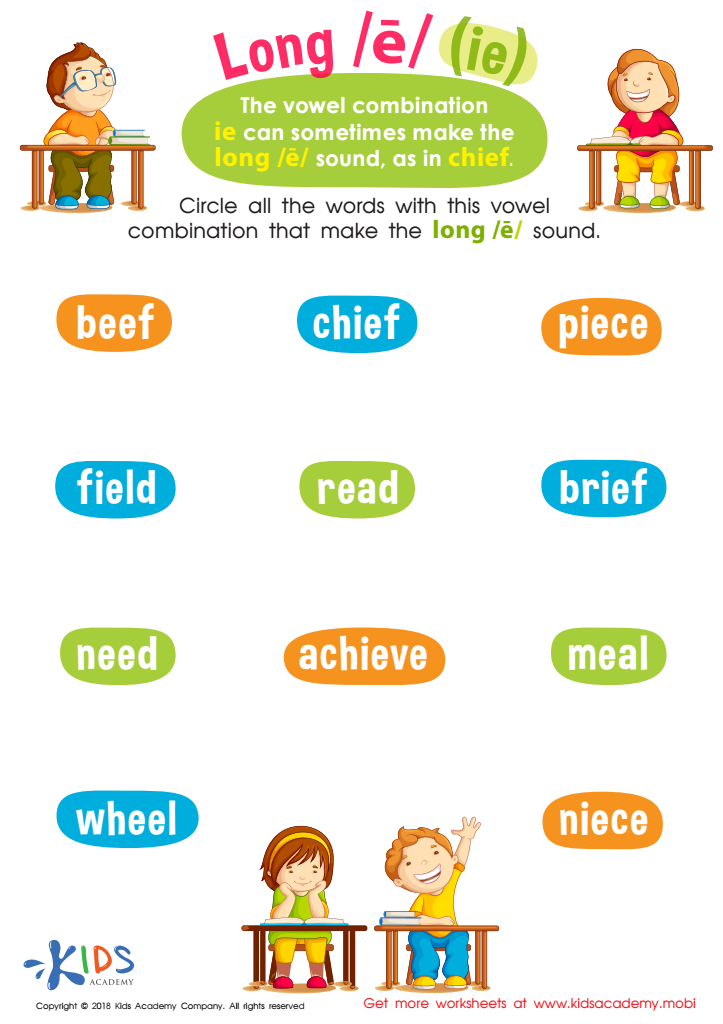

Reading: Long E and IE Worksheet


Short Vowel Eggs Worksheet
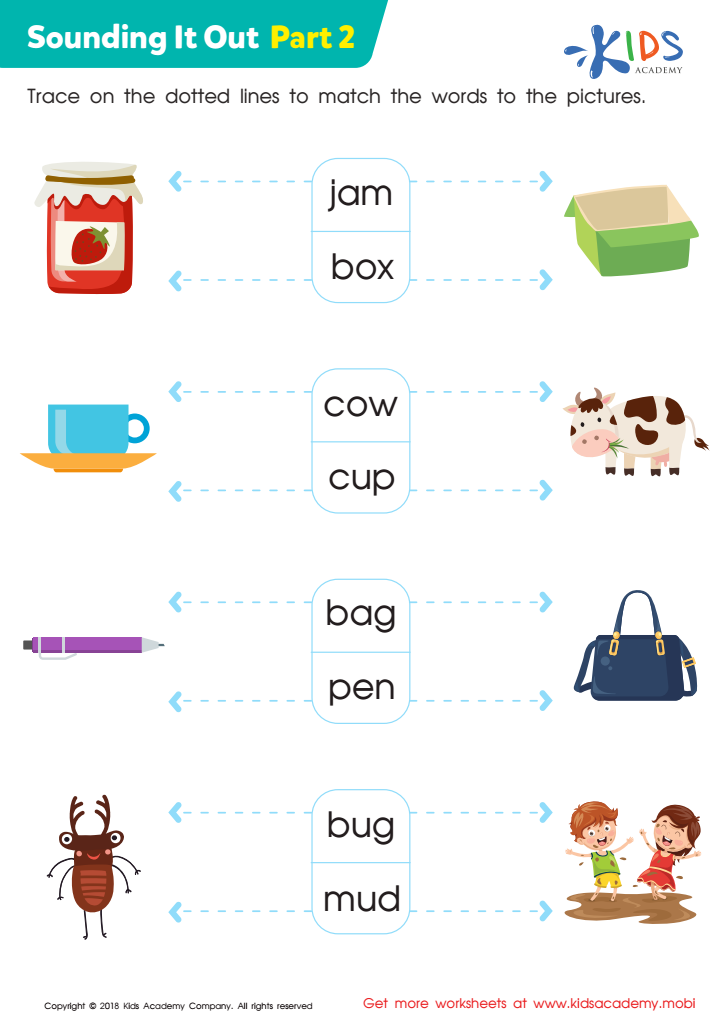

Sounding it Out: Part 2 Worksheet
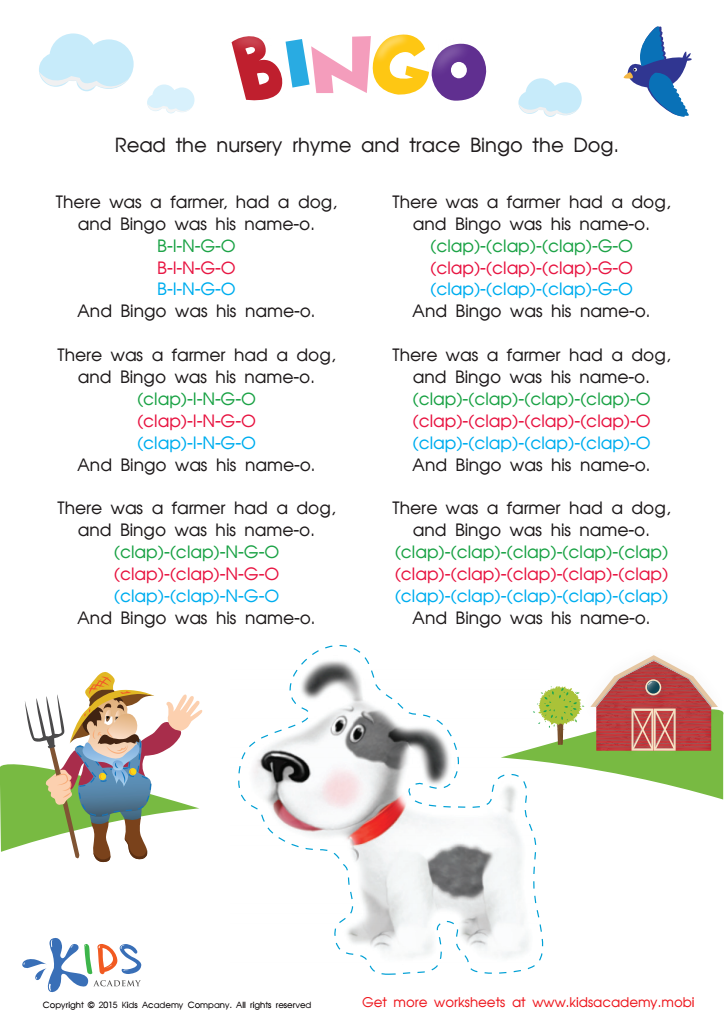

Nursery Rhymes: The Bingo Song Worksheet
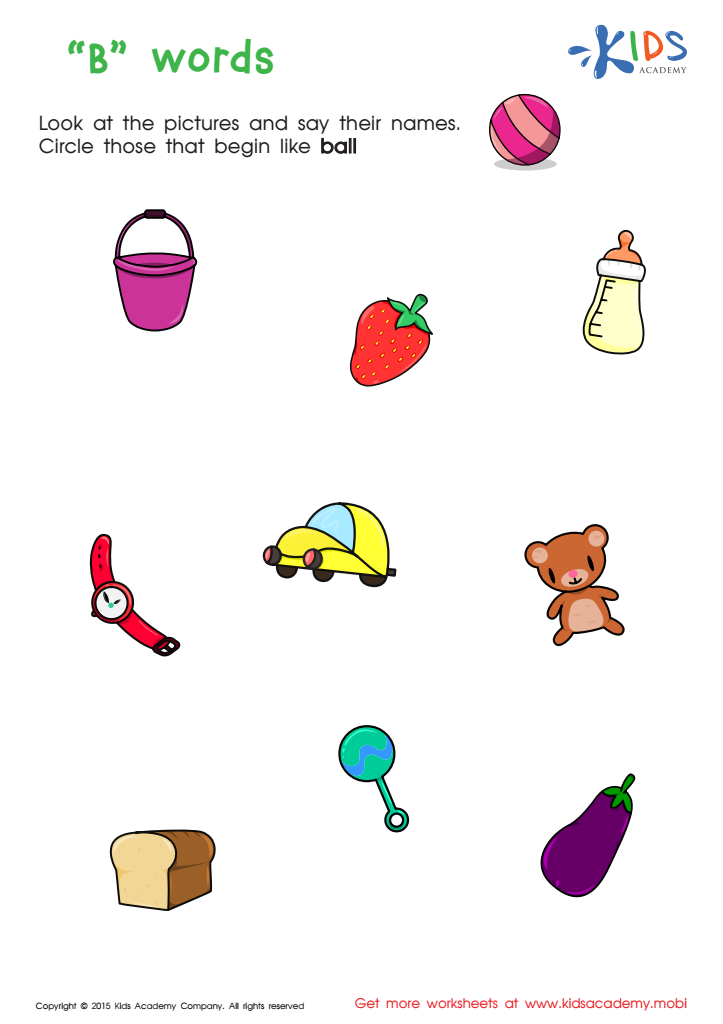

First Words Worksheet
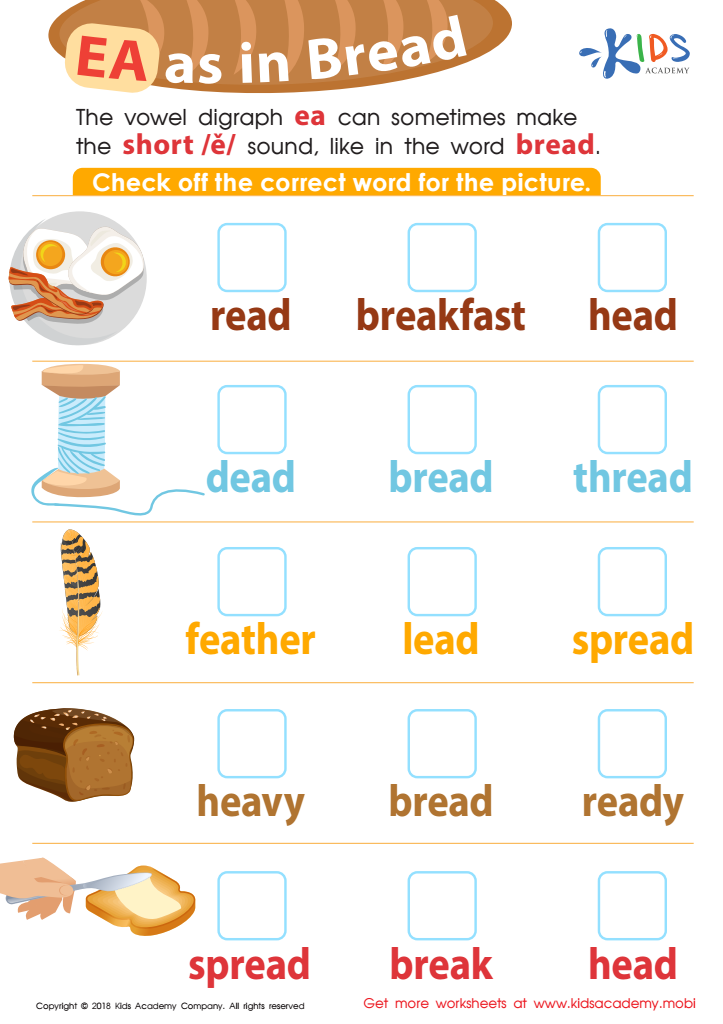

Reading: EA as in Bread Worksheet
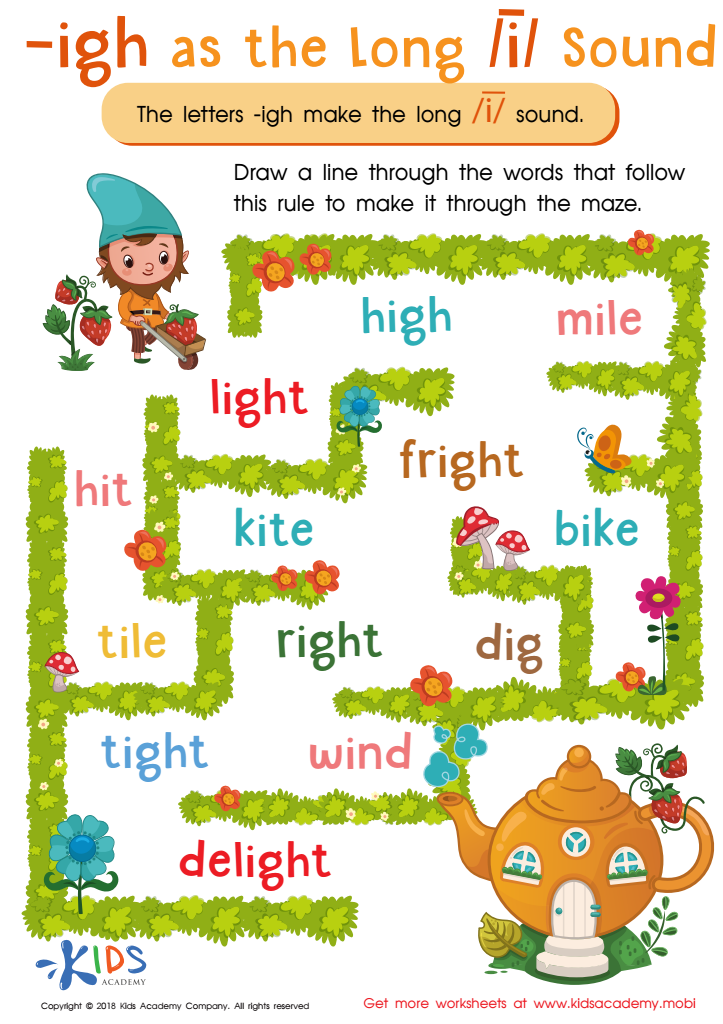

Reading: IGH as Long I Worksheet
Phonics practice is crucial for young readers, especially those aged 3-7, because it lays the foundational skills necessary for reading proficiency. At this developmental stage, children are highly receptive to learning new sounds and symbols. Phonics helps them understand the relationship between letters and sounds, which is essential for decoding words. This skill set is particularly important as it’s directly linked to their ability to read fluently and comprehend text.
Regular phonics practice promotes confidence in early readers. As children learn to recognize patterns of sounds and letters, they gain the tools to tackle new words independently. This boosts their self-esteem and enjoyment in reading, encouraging a lifelong love of books and learning.
Moreover, strong phonics skills contribute to better spelling. When children understand phonetic principles, they’re able to construct words from sounds, improving their spelling accuracy. This skill benefits their overall writing and communication abilities.
For parents and teachers, fostering phonics practice at this age means providing children with consistent opportunities to explore and practice these skills. Interactive activities, engaging books, and supportive environments can make a significant difference. Ensuring this early practice helps prevent future reading difficulties, setting children on a path to academic success and literacy.
 Assign to My Students
Assign to My Students




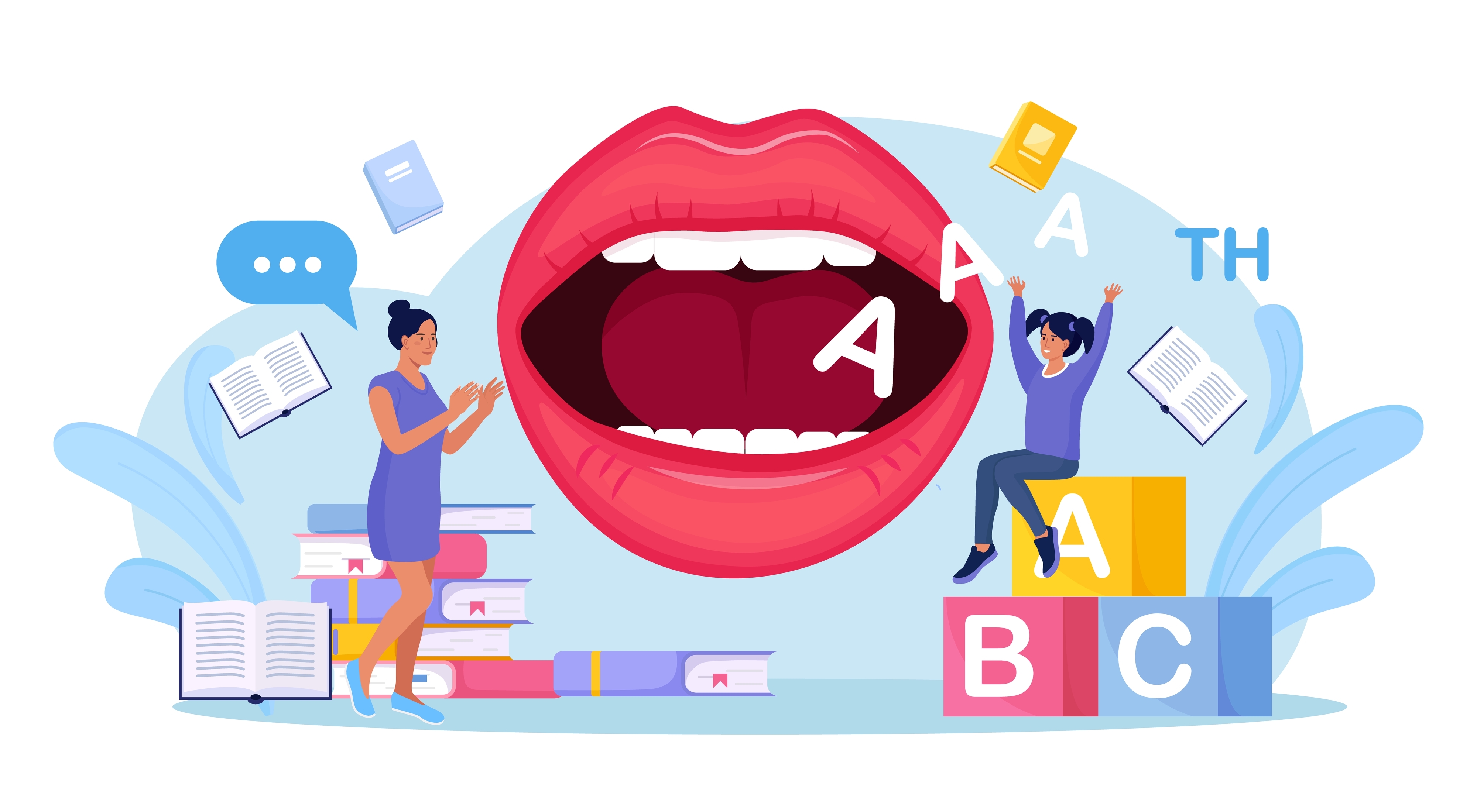



.jpg)










